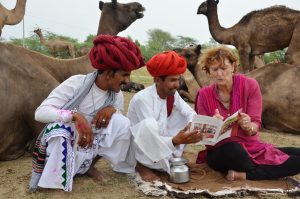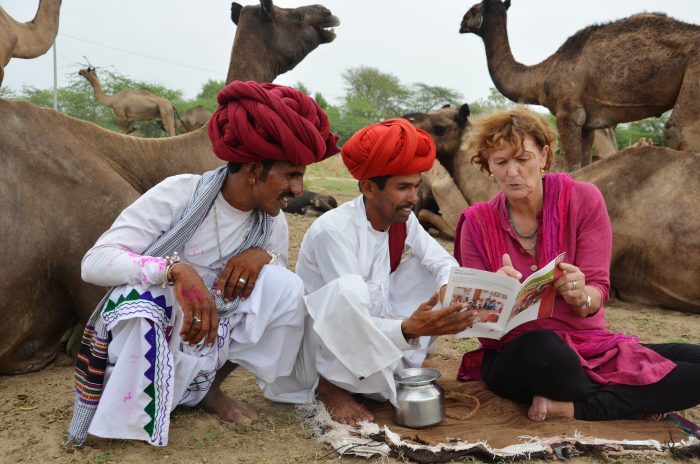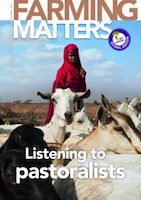Ilse Köhler-Rollefson argues for in-situ conservation of pastoralists’ breeds to save generations of knowledge, that of both livestock and their keepers.
Over centuries, pastoralists have created a large number of livestock breeds that are of enormous value for food sovereignty: they convert the vegetation of drylands and other uncultivable areas into food. They turn ‘waste’ into protein and they do this enormously efficiently – in contrast to the high-input breeds developed in the North that depend on feed that needs to be specially grown with fertilizer, pesticides, diesel, etc..
When we look at the true cost of producing feed, pastoral livestock, ranging from alpacas to yaks, is one of humanity’s greatest assets. Representing an important part of domestic animal diversity, pastoralists’ breeds come under the purview of the Global Plan of Action for Animal Genetic Resources, as well as the United Nations Convention on Biological Diversity (CBD).
But pastoralists’ breeds cannot be reduced to assemblages of genes. They represent knowledge accumulated over generations, not only of their keepers, but also learnt behaviour of animals that is passed on from one generation of livestock to the next: how to make use of natural environments, both individually and as a socially organised population. Survival and performance under extreme conditions is not just a matter of physiological traits and instinct but also of learnt behaviour. That’s why it makes no sense to try to conserve these ‘animal genetic resources’ as frozen semen or embryos. In order to maintain and develop their potential to produce protein in the most climatically volatile regions of the planet they need to be kept and conserved in-situ under the guardianship of their keepers.
The Nagoya Protocol for Access and Benefit-Sharing, an add-on to the CBD from 2012, includes the provision for countries to support Community Protocols in which communities detail the genetic resources and traditional knowledge that they are the custodians of, as well as the conditions under which they would give prior informed consent and provide access.
Pastoralists from India, Pakistan, Iran and Kenya have already taken the initiative to develop such Biocultural Community Protocols in which they explain their situation and outline the conditions under which they can continue to act as stewards of their remarkable herd animals and to ensure ‘access’ in the future.
As the global community begins to look into the role of agriculture in climate change, it is time for more pastoral communities to join this effort and for international organisations to support the endeavour!
Ilse Köhler-Rollefson (ilse.koehlerroll@googlemail. com) is a researcher, writer, activist, teacher and trainer working towards socially responsible and ecologically sustainable livestock development. She is associated with the League for Pastoralist Peoples Endogenous Livestock Development and Lokhit Pashu-Palak Sansthan.
More information about access and benefit sharing of animal genetic resources can be found online.



